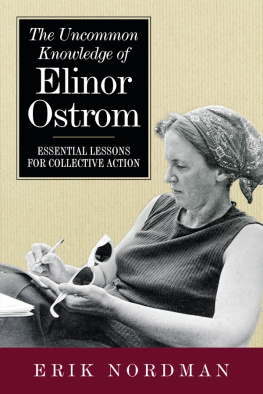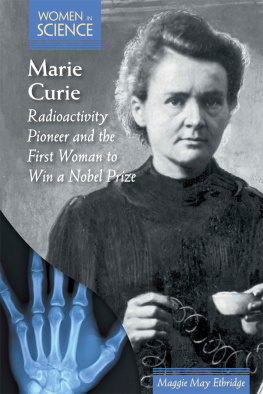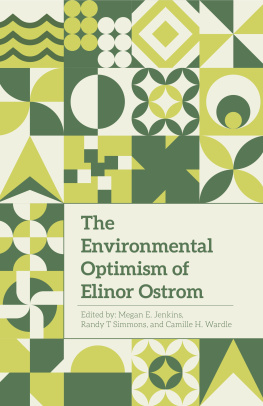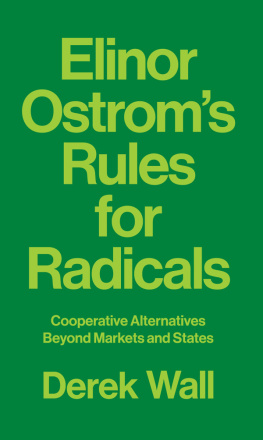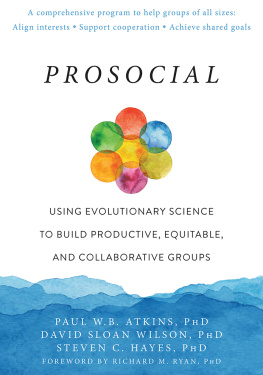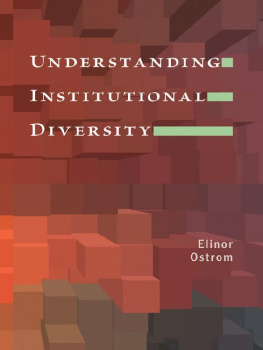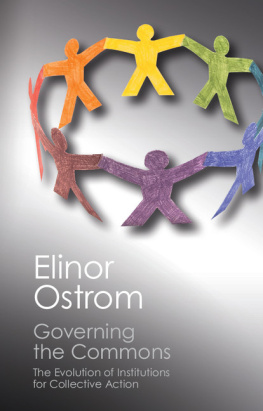About Island Press
Since 1984, the nonprofit organization Island Press has been stimulating, shaping, and communicating ideas that are essential for solving environmental problems worldwide. With more than 1,000 titles in print and some 30 new releases each year, we are the nations leading publisher on environmental issues. We identify innovative thinkers and emerging trends in the environmental field. We work with world-renowned experts and authors to develop cross-disciplinary solutions to environmental challenges.
Island Press designs and executes educational campaigns, in conjunction with our authors, to communicate their critical messages in print, in person, and online using the latest technologies, innovative programs, and the media. Our goal is to reach targeted audiencesscientists, policy makers, environmental advocates, urban planners, the media, and concerned citizenswith information that can be used to create the framework for long-term ecological health and human well-being.
Island Press gratefully acknowledges major support from The Bobolink Foundation, Caldera Foundation, The Curtis and Edith Munson Foundation, The Forrest C. and Frances H. Lattner Foundation, The JPB Foundation, The Kresge Foundation, The Summit Charitable Foundation, Inc., and many other generous organizations and individuals.
The opinions expressed in this book are those of the author(s) and do not necessarily reflect the views of our supporters.
2021 Erik Nordman
All rights reserved under International and Pan-American Copyright Conventions. No part of this book may be reproduced in any form or by any means without permission in writing from the publisher: Island Press, 2000 M Street, NW, Suite 480b, Washington, DC 20036
Library of congress Control Number 2020945053
All Island Press books are printed on environmentally responsible materials.
Manufactured in the United States of America
10 9 8 7 6 5 4 3 2 1
Key words: Island Press, Elinor Ostrom, commons, common-pool resource, common property regime, Bloomington School of Political Economy, collaboration, community-based resource management, Nobel Prize, institutional economics, political science, tragedy of the commons, Garrett Hardin, collective action, Vincent Ostrom, Los Angeles groundwater, lobsters, Tribunal de las Aguas, Valencia, forests, 2030 Districts, climate change, Paris Agreement, space, orbital debris, cybersecurity
ISBN-13: 978-1-64283-156-6 (electronic)
To Linnea and Garrett
Acknowledgments
I was able to complete this book only because of the love and support of my wife, Jennifer Headley-Nordman, and my children, Linnea and Garrett. They encouraged this project from the start, read some very rough drafts, and kept me going through thick and thin. Thank you.
I am grateful to my home institution of Grand Valley State University (GVSU) for enabling me to take a sabbatical leave during which I wrote this book. The universitys Center for Scholarly and Creative Excellence provided critical funds for research trips to Maine and Spain. I also thank the Ostrom Workshop at Indiana University for supporting me as a visiting scholar, both intellectually and financially.
Thanks to Jason Reblando for lending his photographic talents to this project and to Christine Fennessy for interviewing folks in Maine. Many thanks to my colleagues in GVSUs Natural Resources Management Program, Biology Department, and Economics Department for their many years of support and friendship. I also am grateful to all the students whose curiosity helped to inspire this book.
I am indebted to everyone at the Ostrom Workshop for welcoming me into their scholarly community. Special thanks go to Burney Fischerfor his mentorship; Workshop directors Lee Alston and Scott Shackelford for the invitation and support; assistant director and librarian Emily Castle for help tracking down sources and images; and staff members Gayle Higgins, Allison Sturgeon, and David Price for facilitating my visits.
I truly appreciate the time people gave to participate in the interviews. This book would not have been possible without them.
Thanks to Fernando Rosa for sharing his translation and photography skills in Valncia and to Tom Stanton for the early conversations about 2030 Districts. Thanks also to my parents, Bob and Sheila Nordman, for their love and support. I appreciate everyone who reviewed drafts of the chapters and provided valuable feedback, especially Susan Headley, Helen Rosenberg, Patrick Headley, James Kettenhofen, and Jim Freel. Any errors are all mine.
Finally, thank you to Erin Johnson and her colleagues at Island Press for believing in me and the story of Elinor Ostrom.
CHAPTER 1
Whats So Tragic about the Commons?
I first learned of Dr. Elinor Ostroms Nobel-prize-winning research on environmental management when I was a graduate student in upstate New York. However, it took a trip to a Nairobi shopping mall for me to really understand it.
My family and I were living in Kenya while I worked as a visiting professor at Kenyatta University. Nairobi is famous for its chaotic traffic so we relied on a taxi driver, James Waithaka, for most of our car trips. While driving me to a lunch meeting at one Nairobis many upscale malls, Waithaka said that hed drop me off at the front entrance, but he would park at the far end of the lot to wait for me.
I asked Waithaka why he would not be waiting in the taxi lot right in front of the mall. He explained that that lot was unofficially reserved for drivers who are part of the taxi collective. Customers can request a taxi as they leave the mall. The taxi collective determines who gets to drive the next customer, and the drivers agree to charge the same rates. Many of the Nairobi malls had such an informal arrangement. Waithaka, not being a member of the collective, had to wait elsewhere. He also was not interested in picking up another customer because he was going to wait for me.
As a professor of natural resources management, I immediately recognized this as a commons. Commons, or as Ostrom called them, common-pool resources, are goods that can be depleted if overused but are also difficult to exclude people from using. The conventional wisdom held that resources like the common pastures of old-time, agrarian villages would be overgrazed if all residents were allowed to bring as many animals to the pasture as they wished. In this case, taxi drivers from all over Nairobi would have clogged the shopping malls lots. Too many drivers would have chased too few customers. The drivers would have lowered their rates to unsustainable levels in a competition to lure customers. They would have, in effect, overgrazed and degraded the taxi commons and made all of the drivers worse off.
But the taxi drivers did not succumb to this fate. They organized and determined which drivers were in the taxi collective and which were out. They developed rules to determine who gets the next customer. They set physical boundaries where the rules apply and where drivers like Waithaka, who bring their own customers, can wait quietly. And they doled out punishments to those who broke the rules (not all of which were legal). They did this with the tacit approval of the mall owners and law enforcement. The taxi drivers, through years of trial and error, figured out a way to sustainably manage their flow of customers. Each taxi driver has enough customers to earn a living. And they did it on their own.
As Waithaka told me all of this, I recalled the work of Elinor Ostrom. As a professor at Indiana University, Ostrom studied resource-using communities around the world. She found that, contrary to the conventional wisdom, communities can work together to manage their resources without degrading them. These arrangements can be messy and complicated, but they also can be effective. Communities are not relegated to the fate of overusing their commons. And these taxi drivers were yet another example.

